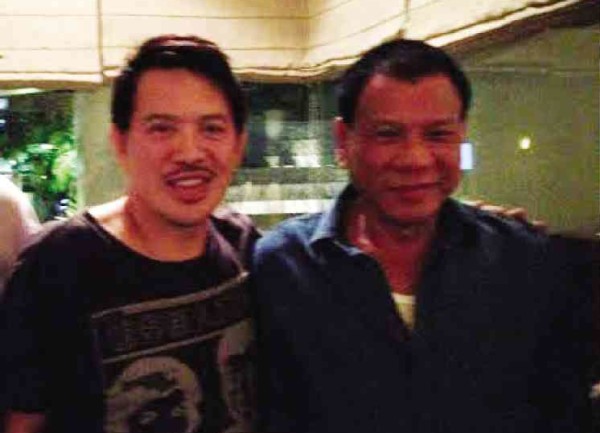The news caught people by surprise—even Brillante Ma. Mendoza himself.
On Tuesday, Martin Andanar, communications chief of President Duterte, asked the Cannes-winning filmmaker to direct the first State of the Nation Address (Sona) on July 25.
Mendoza accepted the offer of Andanar, who was one of the students in his intensive directing workshop last summer.
“For the workshop, Martin had an interesting concept for a documentary, on surfing in Siargao,” Mendoza told the Inquirer. “I first met him last year, when he interviewed me for his podcast.”
Mendoza is confident that his new gig in government will not adversely affect his filmmaking.
“Martin knows about my advocacies, for as long as my work [with the government] is in line with my principles, I don’t see any conflict,” Mendoza said.
Asked how he plans to “present” Digong, the new Philippine president, to the world, Mendoza turned candid.
“Even in Cannes, several foreign reporters had asked me about our new president,” he recalled. “What they knew about President Duterte was limited to the reports in Philippine media. I told them not to be too quick to judge. He had just won the election that time.”
Mendoza competed in Cannes in May, where his entry, “Ma’ Rosa,” won best actress for Jaclyn Jose. (“Ma’ Rosa” opens in local cinemas on July 6.)
He conceded that the President has yet to make major pronouncements on culture and the arts. “But at least he congratulated Jaclyn for her best actress win,” Mendoza pointed out. “Former President Aquino did not.”
Mendoza and Jose were supposed to meet with the President before the premiere of “Ma’ Rosa” in Davao last week. “But because of time constraints, we were not able to make a courtesy call.”
A year before, however, Mendoza had a close encounter with the future president.
It was supposed to be a short meeting that turned into a long, freewheeling conversation.
“He seemed sincere,” Mendoza related. “Down to earth. So different from his public image. He even went through the metal detector and was frisked by the security at the hotel entrance. He didn’t know that we were at the lobby, so it was not a put-on.”
The acclaimed director was in Davao doing research for a possible project at the time. “When he learned of my plan to make a movie on Davao, he told me about a book on the city,” he recounted.
Will Mendoza play a more active role in government in the next six years?
“I can only give suggestions. I can share my experiences abroad … how foreign governments take care of their artists,” he remarked.
Mendoza’s only wish is that the new regime will continue championing local artists, especially indie filmmakers.
“To be fair, the previous administration, through Briccio Santos (chair of the Film Development Council of the Philippines), was able to help many filmmakers,” he explained. “I hope the new government will be just as, if not more, supportive.”
The output is not only increasing in number; it’s also improving in terms of quality, he asserted. “The year was barely half-way through and the country had already won in Berlin and Cannes. Is Venice next?”
